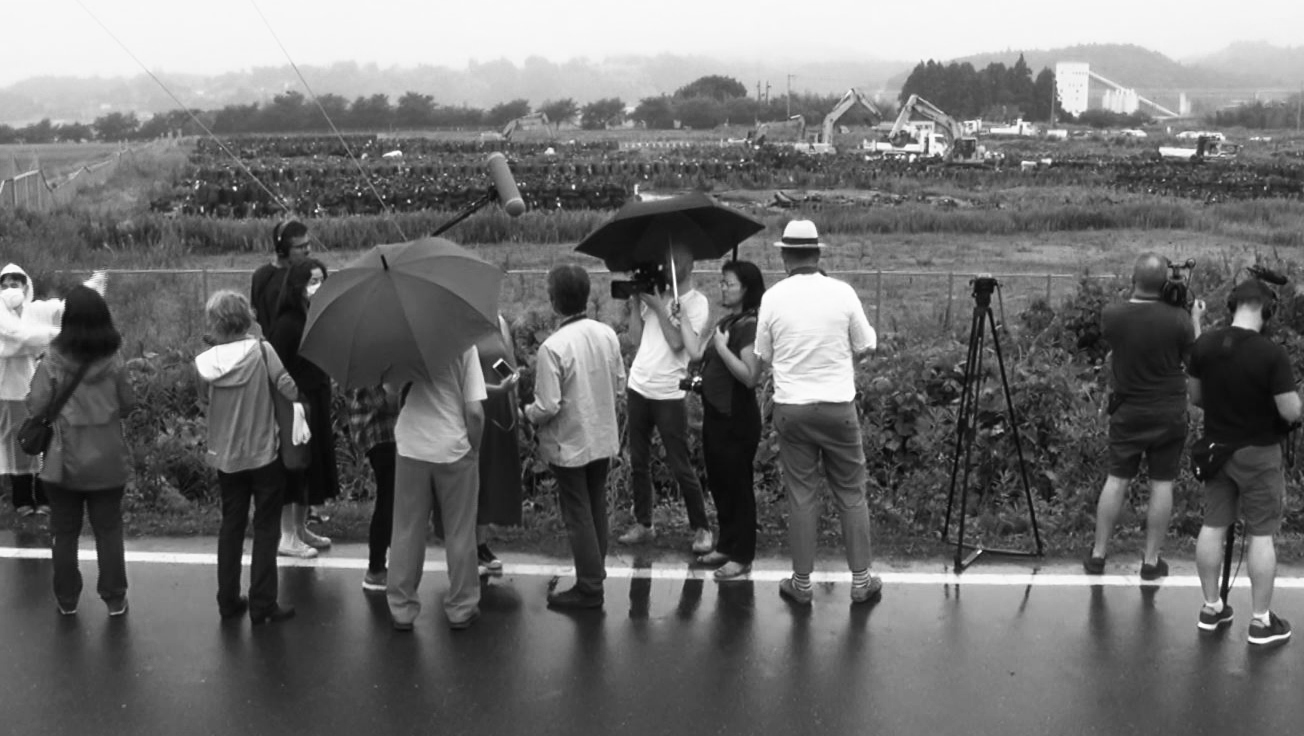Taiwan, Hong Kong, UK & Japan Fukushima Fading: One Year to Go for the ‘Recovery Olympics’July 2019

At the International Olympic Committee (IOC) General Assembly held in Argentina in September 2013, Japanese Prime Minister Shinzo Abe made a presentation in English, “Fukushima is completely under-control and safe.” This is how the 2020 Olympics was settled on Tokyo. It is now one year to go for the so-called “Recovery Olympics” and I have decided to report from Fukushima.

The book, POWER GAMES A Political History of Olympics was published in Japan last year. Its author, Professor Jules Boykoff (48), University of the Pacific, recently visited Hama-dori in Fukushima Prefecture. “I was joking at first, but I would definitely give a small dosimeter to the IOC members who will come to Japan next year,” he said, as he himself measured the dose on the torch relay course.
Due to the Great East Japan Earthquake on March 11, 2011, a large amount of radioactive material was released due to a number of failures, including meltdown, melt-through, and hydrogen explosion at TEPCO’s Fukushima Daiichi Nuclear Power Plant, resulting in the same Level 7 accident as the 1986 Chernobyl nuclear accident. Eight years have passed, and there is no prospect of eliminating radioactive contamination of the sea and land, including the removal of debris and contaminated water. Although these are abhorrent and uncomfortable to live with, these are unmovable facts.
However, the voices of the victims of the nuclear accident in and outside Fukushima Prefecture, and the voices of their supporters, and the journalists who were close to them are about to be wiped out by the festivities of the Olympics. When I was a corporate journalist, it was hard to do straight reporting on this subject, due to invisible pressure from management, shareholders and sponsors. According to a local freelance journalist, a handful of newspaper and TV journalists who were reporting from Hama-dori, where the radiation was high; they had been close to the victims since the accident happened; they are no longer to be seen. This is because the media company to which they belonged to, have moved or transferred them to another company in consideration of the health of their employees.
On the other hand, despite growing concerns about health damages such as thyroid cancer that is frequently seen among children here, the return to decontaminated areas has been promoted. Unlike the victims of pollution and side-effects of medicine, so far, the victims of suspected radiation exposure have not yet appeared in the media with their faces and names. While local and central governments continue to deny the relationship between thyroid cancer and radioactivity, victims are more afraid of being accused of as “inciting malicious rumors” and scared of being discriminated against as ” being a drag on recovery.”
This issue has not been well reported because the press tended to be sympathetic to both the left and right-wings, and they tended to refrain from taking up this issue due to invisible pressure. In the background, it seems as though politics have exerted its influence on science, which is what the press relies on. Independent scientific verification is not easy, amid such pressures, and the results are often ignored. On the internet, even if such data source is specified, the people on the other side tend to ignite and throw them into fire.
If news outlets such as newspapers, TV news programs, magazines, and the Internet fully covered Fukushima, then a non-expert journalist like myself will not be self-assigning this issue. I have never worked in Fukushima Prefecture for the 40 years that I worked as a journalist, and now l live in the Kansai area, and Southeast Asia is my expert field. I have no connections in Fukushima Prefecture, where I visited only three or four times on business trips. Still, I did this interview because as a journalist living in this country, I cannot overlook the current situation of Fukushima. At the same time, I take it as my responsibility to raise issue about Fukushima since I am now retired. As a freelance journalist, I am free to cover this sensitive topic.
